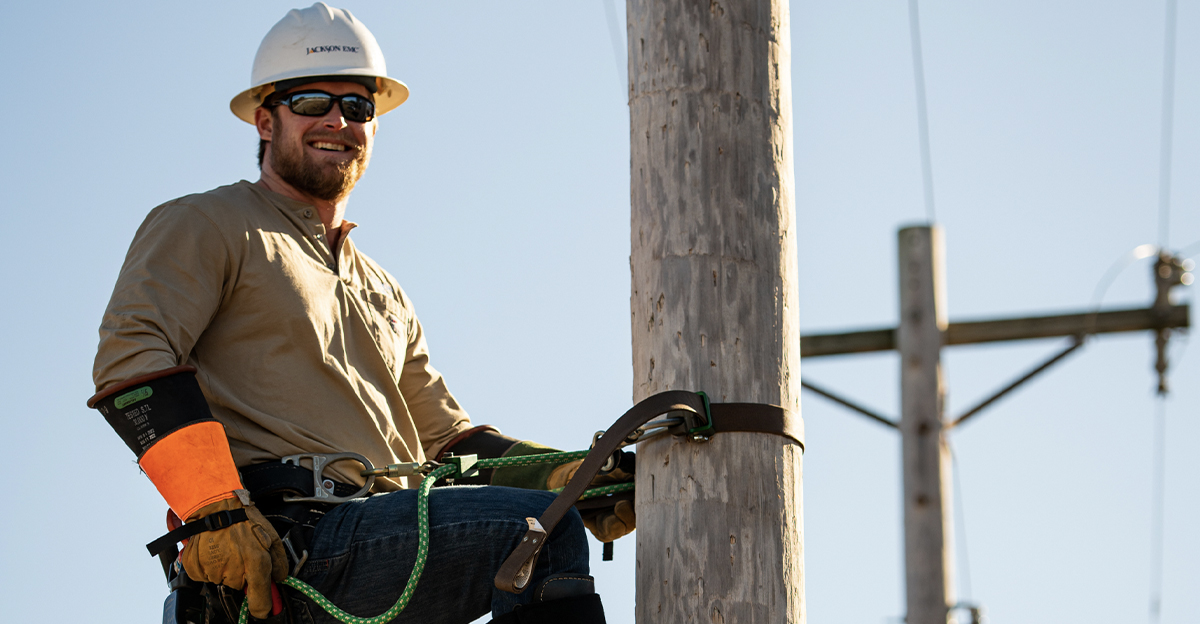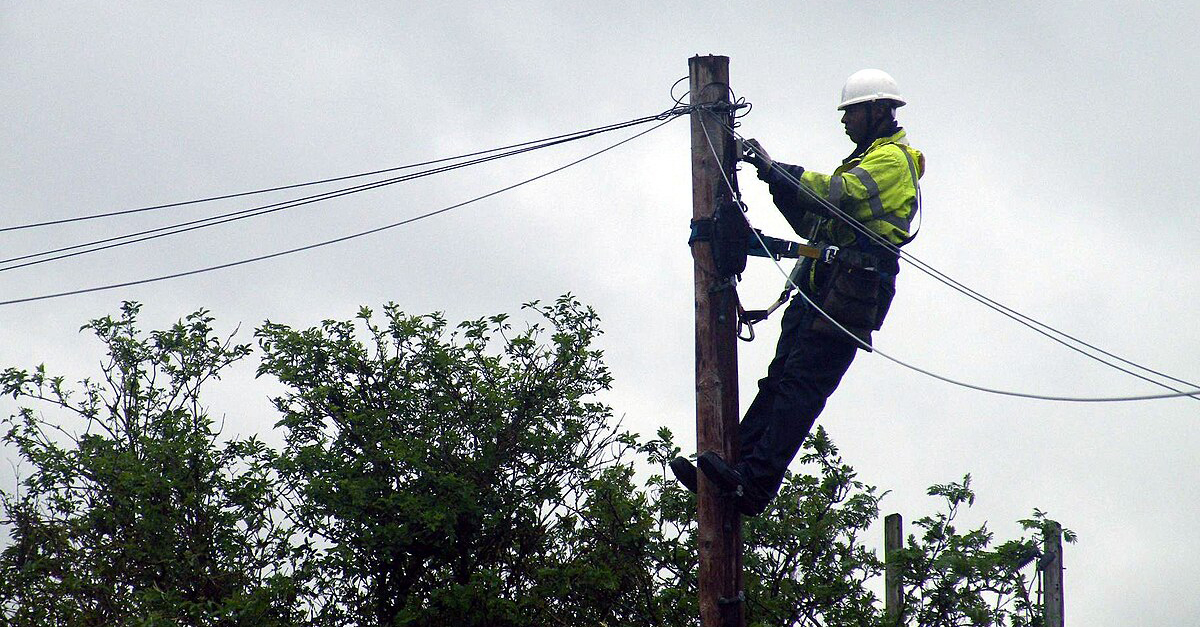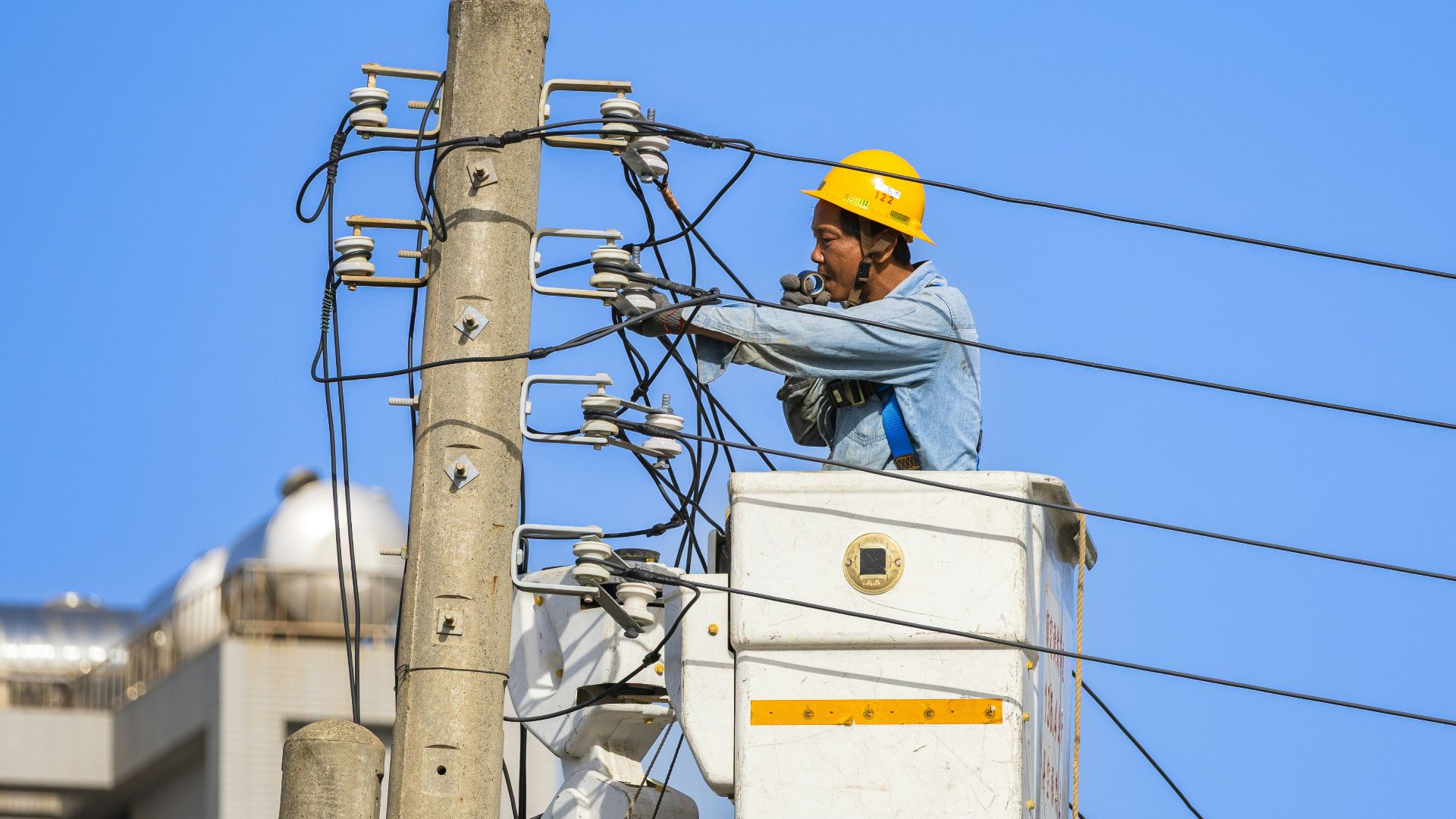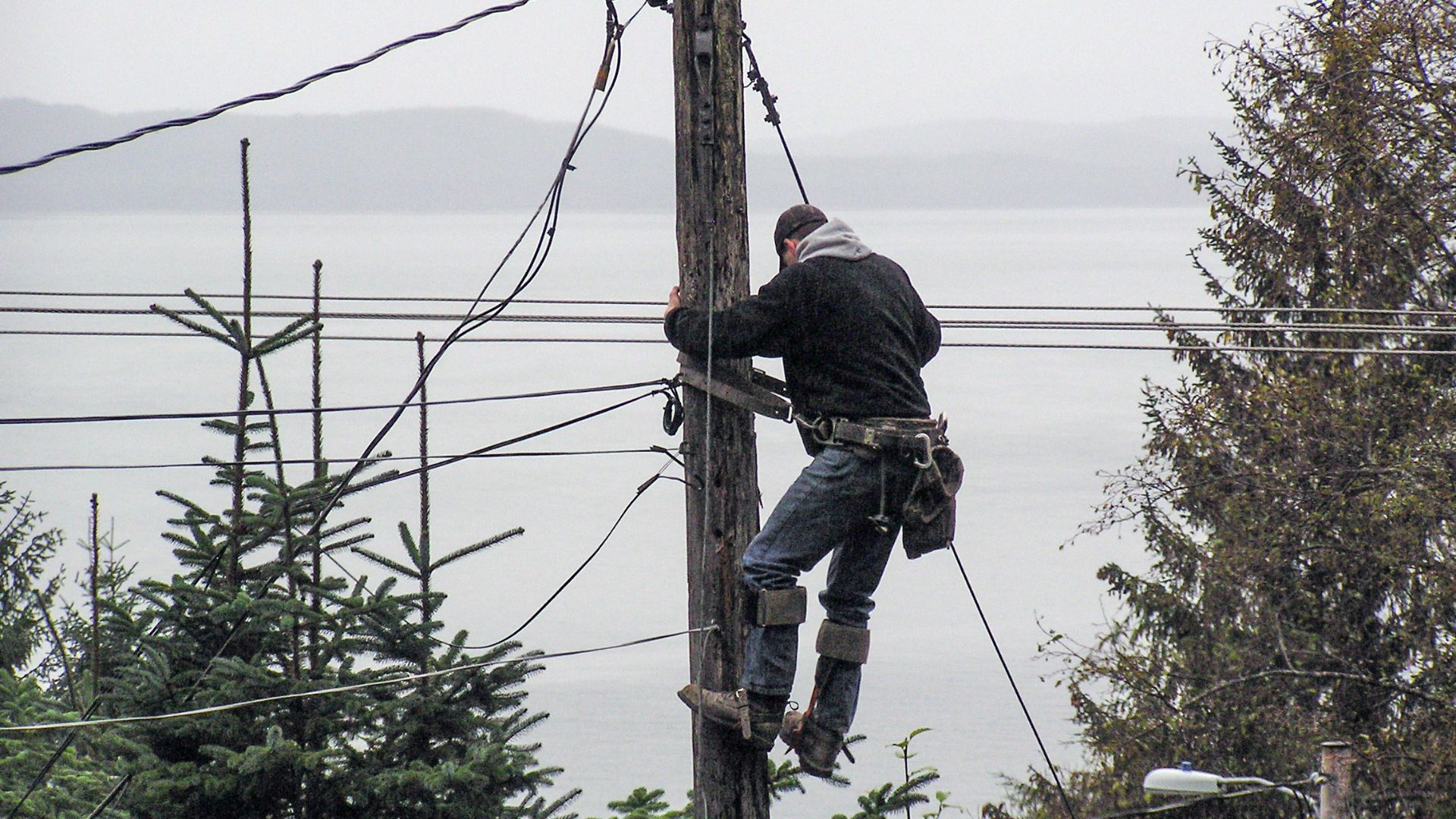Jump Starting A Career
If you’re looking for a high‑demand, well‑paid trade career that doesn’t require you to take a four‑year degree, a career as a lineman may be your answer. Linemen keep our electricity flowing, respond to storms and power outages, and play a crucial role in infrastructure. But the job also comes with some serious hazards, physical demands, and an intensive path to certification. Let’s explore further.

Why Lineman Work Is So Important
Lineman or lineworker careers are essential for maintaining and repairing power and telecom lines. Without linemen, homes, businesses and emergency services could lose electricity or communications. Their work keeps society running; it’s a job that’s increasingly important as aging grids, weather events, and renewable energy drive demand.
Career Benefits
Lineman jobs generally bring strong pay, good benefits and job security. According to trade‑job resources, the median salary exceeds $90,000 a year for many journeyman linemen. Training often starts with paid apprenticeships. The combination of good wages and hands‑on work gives this trade real financial upside.
High Demand & Job Outlook
The need for linemen is growing because of infrastructure upgrades, renewable energy rollout, and retirements in the workforce. One guide reports job growth of about 7% through 2034. That means stable job prospects for the next decade, a situation that is not that common in many trades. There are also opportunities across states for skilled applicants.
Physical Demands & Risks
Being a lineman is not for the faint of heart. Doing this job means climbing poles and towers, working at heights, handling live wires and driving bucket trucks. You’ll face extreme weather, weekend/emergency shifts, and intense conditions. While it’s a rewarding career, the role comes with heightened risks, so physical fitness, stamina, and safety discipline aren’t optional; they’re essential.
Safety Hazards & What They Mean
According to industry sources, lineman is among the most dangerous jobs in the US. Exposure to high voltage, falls from high places, electrocution, and vehicular accidents are real threats. Knowing what the risks are ahead of time will allow you to prepare mentally, train properly, and learn the job with your eyes open.
Minimum Requirements To Get Started
To become a lineman, you generally require a high school diploma or GED, and a valid driver’s license (often a Class A CDL). You’ll need to be in good physical condition and willing to work outdoors. Some programs prompt pre‑employment tests covering math, mechanical reasoning, or spatial skills. Pass those tests and you’ll be ready to start the next steps.
Training Programs & Technical Schools
A lot of future linemen enroll in technical schools or specialized lineworker programs (6‑12 months). These offer hands‑on training in pole climbing, tools, electrical theory and rescue. Although optional in some routes, having a technical credential greatly improves your chances of quickly securing an apprenticeship.
Apprenticeship: The Core Path
Most linemen enter the workforce through 3‑ or 4‑year apprenticeships combining classroom instruction and paid field work. During this time you’ll be climbing poles, riding bucket trucks, restoring power after outages, and learning the ins and outs of the trade from journeymen. Completion of these thousands of hours gives you the qualifications to become a journeyman lineman yourself with full responsibilities.
Certifications And Licenses
Certifications like OSHA 10/30, CPR/First Aid, and a CDL can make a big difference. Some employers require additional induction training such as rubber‑glove certification and rope rescue. Adding these credentials to your resume ensures you meet safety standards and remain eligible for the best jobs.
Climbing The Ladder From Apprentice To Journeyman
Once you complete your apprenticeship, which is typically around 7,000 field hours plus classes, you become eligible for journeyman status. Journeymen enjoy better pay, leadership roles, and can specialize in transmission lines or fiber optics. This progression opens doors to better pay and job opportunities.
Specializations That Boost Earnings
Beyond standard overhead line work, linemen can specialize in tasks like high‑voltage transmission, fiber‑optic cable, and storm‑response teams. These niche specializations typically come with higher pay and more responsibility. Earning credentials in those areas boosts your income and job stability even more.
Financial Upside: Pay & Benefits
Experienced linemen routinely earn six‑figure compensation when overtime and emergency pay are factored in. Many union or utility crews also offer strong benefits: health, retirement plans, paid time off and travel‑premium work. This makes being a lineman more financially attractive compared with a lot of other trades.
 picture alliance, Getty Images
picture alliance, Getty Images
Work Schedule & Lifestyle Considerations
Lineman jobs often require you to work irregular hours, including nights, weekends and travel for storm/repair crews. Being ready for call‑outs, staying away from home, and working in hazardous conditions is all a standard part of the job. The lifestyle isn’t necessarily always convenient, but for many the rewards outweigh the negatives.
 Brian Lawless - PA Images, Getty Images
Brian Lawless - PA Images, Getty Images
Why Good Safety Culture Matters
Because of the high‑risk nature of lineman work, companies place a major emphasis on safety culture. From daily briefings to strict protocols, your safety mindset will determine your performance but it can also save your life or someone else’s. Putting safety first can mean longer career tenure and fewer accidents.
 Xinhua News Agency, Getty Images
Xinhua News Agency, Getty Images
Tools Of The Trade & Technology
Modern linemen use bucket trucks, climbing gear, insulated tools, diagnostic equipment, and drones for inspection. Staying up to date with technology, such as smart grid systems or automated monitoring, gives you a competitive edge in the job market and will ready you for the changers that lie ahead for infrastructure’s future.
Job Market & Geographic Flexibility
Because power infrastructure is pretty much everywhere in our country, linemen are in demand everywhere from remote rural areas to major cities. If you’re open to relocating, storm response, or standby crews, your job options expand by a lot. That geographic flexibility adds wealth and opportunity for an enterprising lineman.
 Education Images, Getty Images
Education Images, Getty Images
The Path You Should Map Out
Map your path: 1) Graduate high school/GED. 2) Attend technical or lineworker training. 3) Earn certifications (OSHA, CDL). 4) Apply for apprenticeship. 5) Accumulate hours and experience. 6) Become journeyman, then specialize. Each step builds credentials, experience, and earning power.
Balancing Risk And Reward
This trade delivers substantial rewards, but it also demands a healthy respect for the risks that go with it. If you’re not willing to climb up poles, work outdoors in bad weather, or handle high‑voltage situations with constant safety awareness you should think twice about becoming a lineman. The payoff is real, but only if you meet the rigors of the occupation.
 The Austin American-Statesman/Hearst Newspapers, Getty Images
The Austin American-Statesman/Hearst Newspapers, Getty Images
Is This Career Right For You?
If you like hands‑on work, physical challenges, outdoor environments, and want high pay without having to spend money and time on a four‑year degree, becoming a lineman is one of the best paths you can take. Prepare early, train hard, stay safe, and you’ll be on your way into a stable, well‑compensated career that makes a difference in everyone’s life.
You May Also Like:
The Best-Paid Trades To Start Learning In 2025
Simple Career Changes To Make More Money In 2025
Strategies For Bouncing Back From A Layoff Without Burning Through Your Savings





















